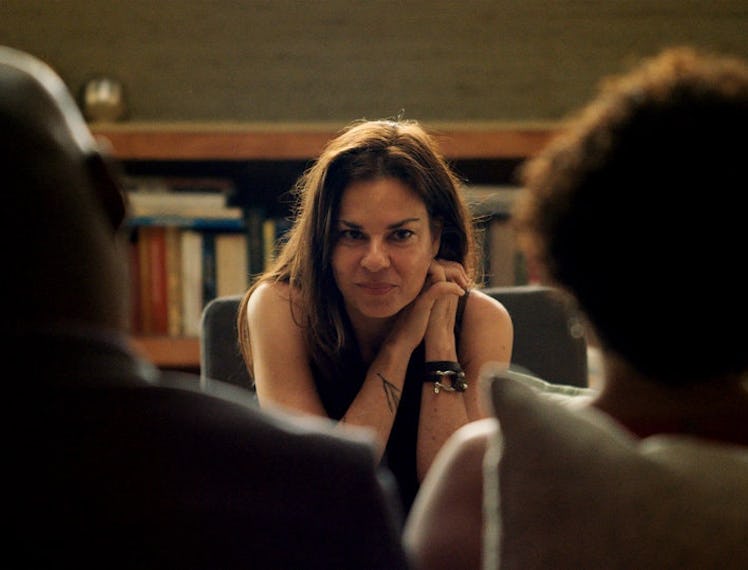The Voyeuristic Allure of Couples Therapy
Welcome to the W TV Club, a spin-off series of W Movie Club, in which W magazine’s editors pick a season of a television show they’d recommend you binge-watch. This week, culture editor Brooke Marine recommends the Showtime docuseries Couples Therapy which often feels like an exercise in engaging with empathy—for others and for yourself.

Whether or not you’ve sat on a therapist’s couch yourself, Couples Therapy is a welcome entry into the canon of “self help” television.
It would be unfair to spoil the details of the various couples who appear on Couples Therapy, which airs on Showtime, but each season the docuseries follows a handful of pairs all in various states on the verge of collapsing, each of whom get a dose of reality from Dr. Orna Guralnik. It is astonishing to watch Guralnik work with her clients, as she calmly encourages them to open up about their deepest issues with their partners, and to see how quickly most people (though not all) reveal themselves to the therapist in front of a camera crew. The passive aggressive comments, openly bitter quarrels, forgiveness—it’s all in there. And though the show was snubbed by the Emmys, where it should have been a strong contender for the Outstanding Unstructured Reality Program award, it was just renewed for a two-part third season).
It all makes for reality television that I find more compelling than the likes of The Bachelor or Love Island, highly produced “dating series” that heighten the stakes in the contestants’ dynamics so that viewers can feel more separated from the “characters” they see on screen. You might not feel that you can relate to the contestants, or you might just feel that they’re operating on a totally different wavelength of what constitutes “normal” for the sake of the microcelebrity they experience as participants on their respective reality shows. What’s interesting about Couples Therapy is that you will see yourself in one or more of the couples, whether you’re in a relationship or not. Watching the series feels like engaging in an exercise in empathy for the plights of others, as well as a reminder to take the occasional moment for self-reflection—not unlike attending an actual therapy session.
The second, most recent season deftly weaves in the Covid-19 pandemic and the unique stresses that have been placed on relationships and families living together in close quarters for the past year and a half. Guralnik herself is only human—she also brings the therapy into her home (via Zoom) and reveals a bit more about her personal relationship to her practice by giving us insight into the sessions she has with her own counselor. The show may be contentious to some—how ethical is it to film people’s most private revelations over the course of 5 months, and how ethical is it to be a voyeur of those revelations?—but it has an addictive quality to it, and opens up the possibility of having some revelations of your own.